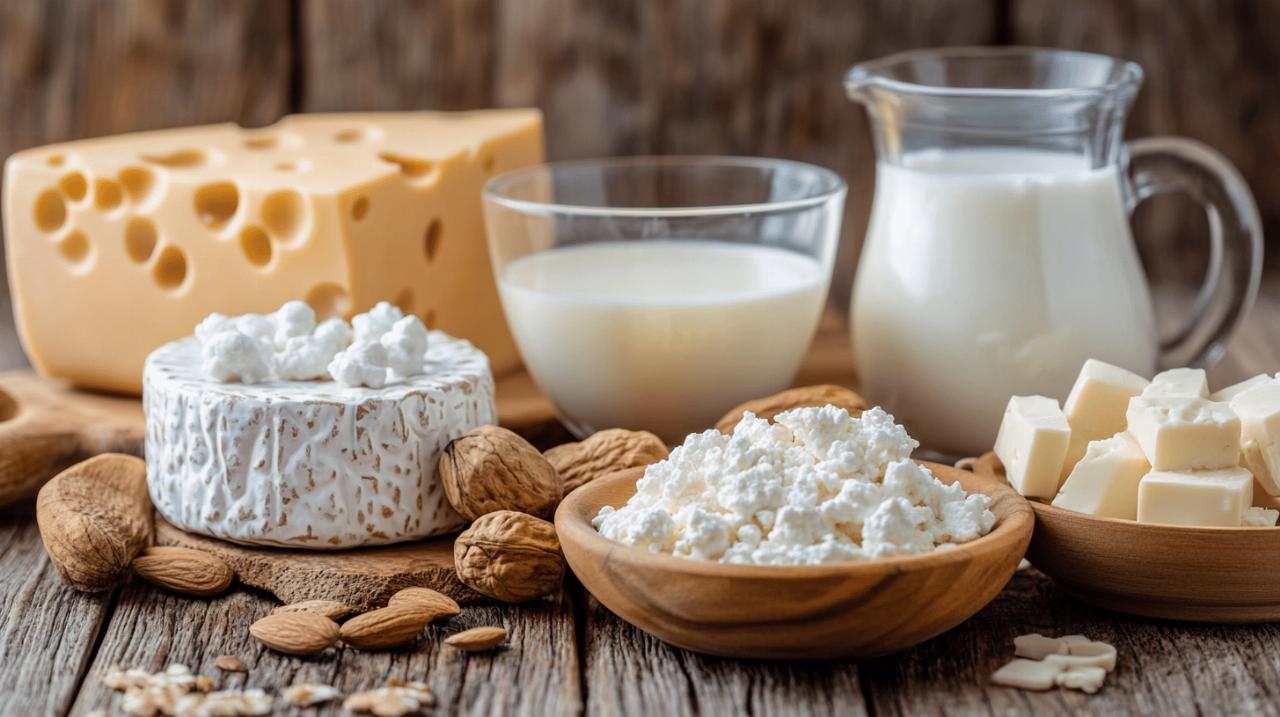Ensuring adequate calcium intake is vital for maintaining bone health and preventing osteoporosis, a condition that causes bones to become fragile and prone to fractures. While dairy products are commonly associated with calcium, there are numerous non-dairy alternatives that can help meet your daily requirements. Comunica Salud experts emphasize that these alternatives are especially important for those who follow plant-based diets, have lactose intolerance, or simply prefer to reduce dairy consumption.
Plant-based calcium powerhouses
Plant foods can provide significant amounts of calcium, often with additional nutrients that support bone health. Incorporating these foods into your daily meals can help you reach the recommended 700mg of calcium for adults, or 1,000mg for those aged 19-50 years.
Leafy greens and their calcium content
Dark leafy greens stand out as excellent calcium sources. Kale provides approximately 200mg of calcium per four tablespoons and contains only 35 calories per 100g, making it a nutrient-dense option. Raw collard greens offer 84mg per cup, while mustard greens contain 64mg per cup. Broccoli delivers 87mg of calcium per cup when frozen and 112mg per 120g when raw. Watercress and pak choi are also valuable sources. It’s worth noting that calcium from most green vegetables is well absorbed by the body, though spinach is an exception due to its high oxalate content, which inhibits calcium absorption.
Other vegetables rich in calcium include okra (82mg per cup raw), butternut squash (84mg per cup), and broccoli rabe (100mg per cup). These vegetables not only contribute to your calcium intake but also provide additional nutrients like vitamin C, fibre, and antioxidants that support overall health.
Nuts, seeds and beans rich in calcium
Nuts and seeds are concentrated sources of calcium and other bone-supporting nutrients. Almonds contain an impressive 385mg of calcium per cup, though they are calorie-dense with 838 calories per cup. A more moderate portion of 30g provides about 75mg of calcium. Sesame seeds are particularly rich in calcium, offering 88mg per tablespoon, making tahini (sesame seed paste) an excellent calcium source.
Chia seeds deserve special mention, providing 179mg of calcium per ounce (approximately two tablespoons). Sunflower seeds contain 109mg per cup and are also rich in magnesium, vitamin E, and copper, all of which support bone health.
Beans and legumes are another valuable calcium source. White beans contain 161mg per cup, while chickpeas and kidney beans also contribute significant amounts. Soya beans and tofu, especially calcium-set tofu, are excellent options with some varieties providing between 275-861mg per half cup. When purchasing tofu, check the label to ensure it’s been prepared with calcium salt. Edamame (young soya beans) provides 98mg of calcium per cup when frozen and prepared.
Calcium-fortified alternatives
Fortified foods have calcium added during manufacturing, making them valuable options for those seeking to increase their calcium intake without consuming dairy products.

Non-dairy milks and yoghurts with added calcium
Fortified plant-based milk alternatives can contain similar calcium levels to cow’s milk, which provides about 240mg per 200ml serving. Soya, almond, oat, and rice milk fortified with calcium are widely available, though it’s worth noting that rice milk isn’t recommended for children under 5 years old. When selecting plant-based milk alternatives, check the label for calcium content, as organic versions may not be fortified. Many of these products also contain added vitamin D, which enhances calcium absorption.
Similarly, calcium-fortified plant-based yoghurts can provide comparable calcium to dairy yoghurts, which typically contain around 200mg per 150g serving. These alternatives often use bases such as soya, coconut, or almond and have calcium added during production. When choosing these products, be mindful of added sugars, which some brands include to improve flavour.
Other calcium-enriched foods and supplements
Beyond milk alternatives, many other foods are fortified with calcium. Fortified bread, both white and brown varieties, can contribute to your calcium intake. Fortified breakfast cereals can be particularly valuable when consumed with calcium-fortified plant milk, creating a calcium-rich meal to start the day.
Calcium-fortified orange juice typically contains about 300mg per glass, significantly more than a large orange which provides 74mg. Fortified water is another option, though less common. Even hard tap water can contribute small amounts of calcium to your diet.
For those who struggle to meet calcium requirements through diet alone, calcium supplements may be an option. However, it’s also essential to ensure adequate vitamin D intake, as this nutrient is crucial for calcium absorption. Adults need about 10 micrograms (400 IU) of vitamin D daily. While sunlight on the skin is the primary source, vitamin D supplements are recommended during autumn and winter months in many regions. Fortified foods such as breakfast cereals and plant milks, as well as mushrooms exposed to UV light, can also provide vitamin D.
It’s important to remember that calcium absorption is just as important as intake. Regular physical activity, adequate vitamin D levels, and avoiding excessive alcohol and smoking all support bone health alongside a calcium-rich diet. By incorporating a variety of these non-dairy calcium sources into your daily meals, you can effectively maintain bone health and reduce the risk of osteoporosis throughout life.
